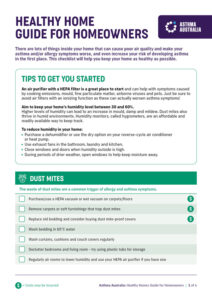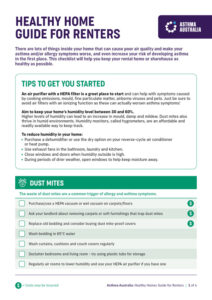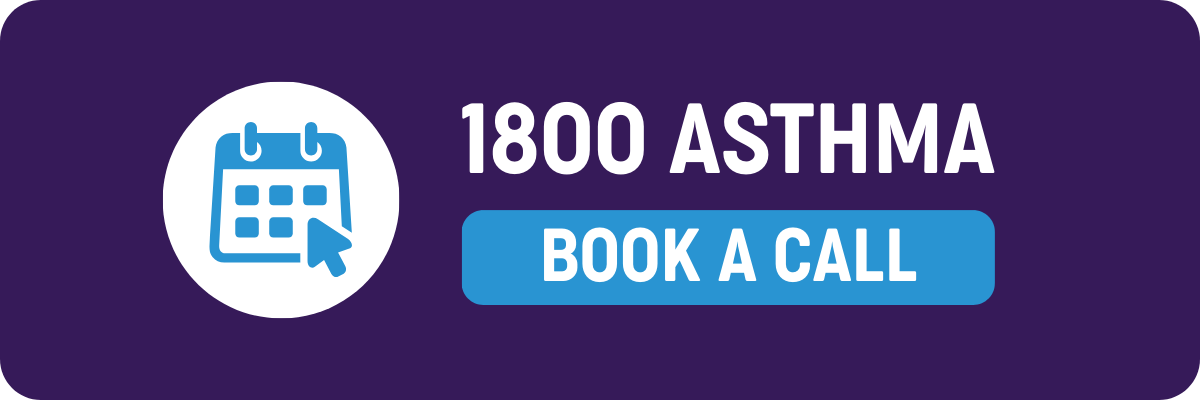Knowing Your Triggers and How to Avoid them
For most people with asthma, the most important way to lessen symptoms, flare-ups and attacks is by using your asthma preventer medicine every day. This is true even when you are not having asthma symptoms. Another way to manage your asthma symptoms is to know your triggers and learn how to avoid them when it’s possible.
Take the Asthma Control Questionnaire
It’s important to identify triggers that may be present in your own home. Everyday items like gas appliances, dust, pet hair and mould can contribute to asthma symptoms. By being aware of these triggers, you can take steps to minimise exposure and keep your asthma well-controlled.
Some simple ways to help avoid common triggers include:
- Keep track of where or when you have noticed symptoms come on quickly. This could help you pinpoint your trigger.
- Be aware of weather changes or events and high pollen days. Avoid or reschedule activities that you know will increase your exposure to triggers or allergies.
- Stay indoors when you can during the peak pollen season, on windy days and during thunderstorms.
- Maintain good air quality indoors.
- Use recirculated air in the car/home when pollen levels are high.
- Wear a face mask in high pollen times and wash yourself after being exposed to a trigger.
- Warm up before exercising.
We understand that you won’t always be able to avoid your triggers. In these cases, we recommend you:
- Follow your Asthma Action Plan that you have filled in with your doctor.
- Act early at the start of asthma symptoms. Be prepared and always carry your reliever puffer with you and know how to use it with a spacer.
- Learn Asthma First Aid, so you know what to do in an emergency.
- Ask your doctor about allergy testing.
- Ensure you are up-to-date with all your vaccinations.
There are many products, natural remedies or therapies that are promoted to reduce asthma triggers. Many of these are not proven to or make any difference to asthma symptoms or reduce flare-ups.
What is proven to work to improve asthma control is:
- knowing your triggers and taking actions to avoid exposure
- using your asthma medicines as prescribed
- having a written Asthma Action Plan
- booking regular check-ups with your doctor.
Talk with your doctor about your triggers and ask for them to be added to your Asthma Action Plan, together with what action to take if they flare up your asthma symptoms.
For more information on triggers, call 1800 ASTHMA or find out more about specific triggers below.
Asthma Educators can answer your asthma questions
Book a FREE phone call at a time that works for you or call us direct on 1800ASTHMA (1800 278 462).





 1800 278 462
1800 278 462


